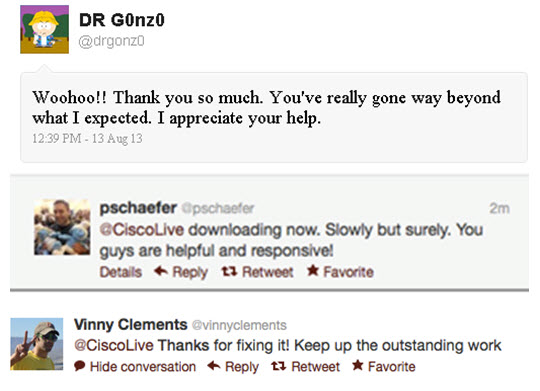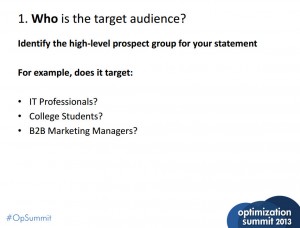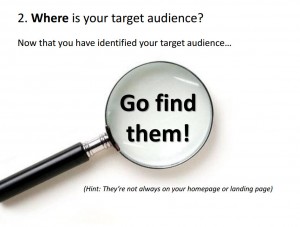Why Social Media is the New Customer Service Hotline
Buying your first house is a big milestone in American life.
There are two entire HGTV shows, “My First Place” and “Property Virgins” centered around the experience.
Every episode follows basically the same trajectory:
Overly anxious buyers, with expectations that far exceed their budgets, hoping to find the “perfect” dream home to live happily ever after with no problems.
“Oh honey,” current homeowners say pityingly, as they shake their heads knowingly.
Good luck to whoever has those expectations. The really difficult (and least interesting) stuff happens once you move into that glorious, shining home.
Take a friend of mine for example – she recently made that big step into adulthood and bought her first home. Closing went fairly well, so she was feeling good when she finally moved in.
Then, like most first-time homeowners, she looked around and realized how much needed to be done, and how much stuff she didn’t have.
All at once the chaos of happily ever after began to unravel in a series of rescheduled deliveries and insanely long waits on the customer service lines. The real breaking point came when she was trying to schedule the delivery of her washer and dryer.
The company-that-shall-not-be-named rescheduled her delivery four times, and upped her backorder wait time from two weeks to six weeks. After being stressed out by multiple phone reps and receiving no responses to her emails to customer service (she’s still waiting for a reply, in fact), she decided to take the fight to social media.
She was shocked to see the company’s Facebook page promoting the backordered machine that had caused her so much trouble five weeks after purchasing. Not only that, but the website was making the dubious promise that people ordering five weeks after her would receive their washers only three days after her machine was scheduled for delivery.
In spite of posting her concerns, the only interaction she had was with other customers – the brand never commented or attempted to help.
The truth is, many large companies are still not placing enough importance on social media as a customer service channel that more customers have come to expect.
But, there is hope as some big brands are starting to use social media to truly enhance the customer service experience.
Social media is the ultimate opportunity to connect with customers
For example, Cisco is a large company that focuses on meeting customers in the social media sphere. Kathleen Mudge, Social Media Marketing Manager and consultant, Cisco, has previously spoken with MarketingSherpa about her views on different social media platforms.
Kathleen consistently embraces social media as the ultimate opportunity to connect with customers.
“Providing customer service can be an entry point to an ongoing relationship,” she said, adding customer service is a great opportunity for conversation and connection with the brand.
Because Cisco is such a large company, Kathleen said it can be “daunting and confusing for customers when an issue arises. I love delighting customers with quick replies to questions, issues or concerns they post through their social media channels,” she said.
Make customers feel heard
Cisco’s social media channels are monitored year-round, Kathleen said, and her goal is to consistently be “extremely responsive to our communities.”
During off-peak times, when one of Cisco’s events isn’t ramping up or in progress, she said customers may expect a response within 12 hours, “but normally within the hour during the week.”
During events however, social media is in overdrive, and customers receive a response time that local emergency crews would envy – within three minutes or sooner.
Kathleen credits proper staffing to this feat, a necessity when “event conversations explode, as they did last June [during the Cisco Live event] with 46,000 total social mentions.”
Use complaints as an opportunity
Responsiveness is especially key when dealing with a complaint or upset customers, and addressing the issue immediately will keep the issue in check, Kathleen said.
“I may not have the answer, but I want to let them know I am aware of their issue and I am seeking an answer or solution or whatever it is they may need,” she said.
The same principles of customer service via phone, email or in-person are true in social media (perhaps especially important since it’s available for other customers to see) and making sure a customer feels seen and heard is paramount.
If there isn’t a timely response, “they will most likely continue to get more frustrated and their complaints may multiply, causing a very negative situation for the brand,” Kathleen said.
A complaint handled properly is an opportunity to solve the same problem for other customers who may be following the conversation.
“We can’t always provide a resolution that is what the customer is requesting. No brand can be all things to all people,” she said. But letting a customer know you are aware of their situation and troubleshooting it, “that does a lot to ease the aggravation.”
Use and promote positive interactions
Sometimes customers are using social media as an outlet to voice their excitement for an event or their overall experience with the company, and those positive updates, “truly make my day and are the favorite part of my job,” Kathleen said.
When Cisco customers post positive updates on Twitter, for example, Kathleen retweets it from the brand in addition to responding to them.
“When I see that I can make a positive difference for someone online through communication with the brand, I am absolutely thrilled and I want to amplify their update by a retweet on Twitter or a ‘like’ and response on Facebook or another channel,” she said.
Cisco’s events are also provide a great opportunity to flaunt those positive customer interactions – as updates may appear on the big screen during a keynote in front of 20,000 attendees, as well as being available for their virtual audience.
Singling those comments out works for both parties: “They love being recognized and we love highlighting their comments,” she said.


















